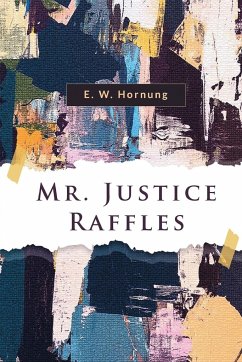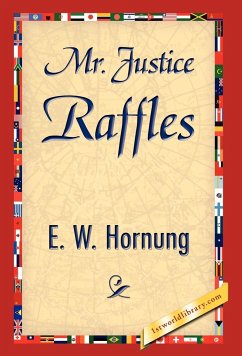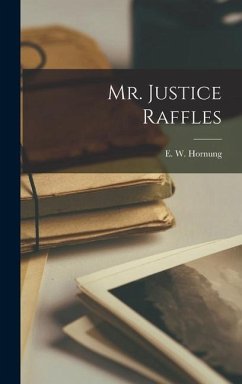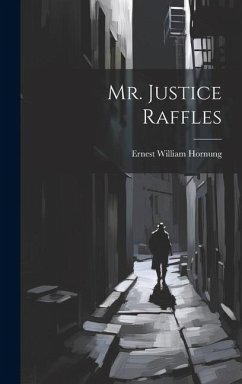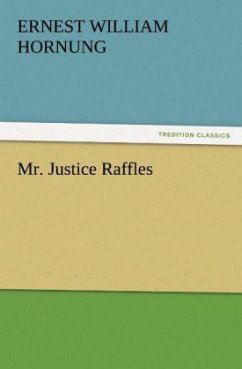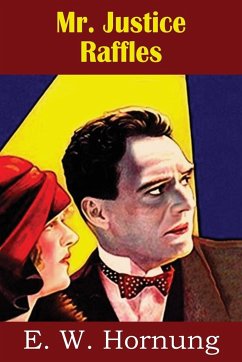
Mr. Justice Raffles
Versandkostenfrei!
Versandfertig in 1-2 Wochen
15,99 €
inkl. MwSt.

PAYBACK Punkte
8 °P sammeln!
Raffles had vanished from the face of the town, and even I had no conception of his whereabouts until he cabled to me to meet the 7.31 at Charing Cross next night. That was on the Tuesday before the 'Varsity match, or a full fortnight after his mysterious disappearance. The telegram was from Carlsbad, of all places for Raffles of all men! Of course there was only one thing that could possibly have taken so rare a specimen of physical fitness to any such pernicious spot. But to my horror he emerged from the train, on the Wednesday evening, a cadaverous caricature of the splendid person I had go...
Raffles had vanished from the face of the town, and even I had no conception of his whereabouts until he cabled to me to meet the 7.31 at Charing Cross next night. That was on the Tuesday before the 'Varsity match, or a full fortnight after his mysterious disappearance. The telegram was from Carlsbad, of all places for Raffles of all men! Of course there was only one thing that could possibly have taken so rare a specimen of physical fitness to any such pernicious spot. But to my horror he emerged from the train, on the Wednesday evening, a cadaverous caricature of the splendid person I had gone to meet.




